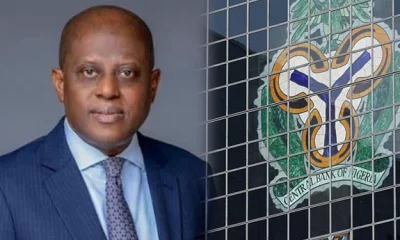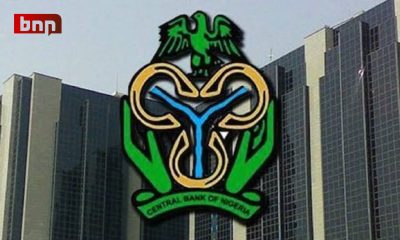With Nigeria recovering from recession, the first in the past 25 years, the Monetary Policy Committee of the CBN, which begins its two-day meeting today is expected to retain interest rate in other to contain above target consumer price growth.
Last month, monetary policy officials unified some of their rates when they let currency dealers quote naira levels used in actual trades. The move immediately weakened the naira’s interbank price 14 percent to about 365 per dollar, near the black-market rate, with the currency trading at 353 by 3:02 p.m. in Lagos Friday.
“The economy’s return to growth has definitely eased pressure on the authorities,” Gaimin Nonyane, the London-based economic-research head at Ecobank International Group, said in an emailed response to questions. High inflation and the “fragile” nature of the recovery “will continue to undermine prospects for a rate cut. As economic imbalances reduce, we might see policy easing in either November or the first quarter of next year.”
“They would want to avoid making any drastic move that will jeopardize the recently achieved stability in the foreign-exchange market,” Nonyane said.
“The MPC may hold rates to maintain stable domestic prices compatible with economic growth objectives, while the government implements fiscal measures to sustain growth,” Lagos-based FSDH Merchant Bank Ltd. said in an emailed note. “Fiscal measures in the form of tax relief and tariff adjustment are required to boost economic activities.”
ALSO SEE: CBN mops up funds as banking liquidity shortfall rises
The economy expanded 0.6 percent in the second quarter, driven by growth in agriculture and in oil, which accounts for two-thirds of government revenue. It will take some time to return to above 5 percent, the level of economic expansion before prices and output of crude tumbled in mid-2014, Statistician-General Yemi Kale said in an August interview.
Improved dollar supply also helped ease inflation by reducing import costs, but at 16 percent in August, price growth remains outside the central bank’s target of 6 percent to 9 percent.
Nigeria tightened currency controls soon after crude prices crashed in 2014, which exacerbated an economic crisis, hammered importers and deterred investment. While the central bank has eased some trading restrictions this year — including by creating a foreign-exchange window for investors in which the naira is meant to float freely — the country is still stuck with import curbs and a convoluted system of multiple exchange rates, with spreads stretching almost 20 percent.
President Muhammadu Buhari’s administration plans to increase spending to a record 7.4 trillion naira ($20.9 billion) this year, as part of a wider plan to boost the economic growth to 7 percent and create 15 million jobs by 2020 by pumping cruder, increasing farmlands and increasing infrastructure spending.

 Football1 day ago
Football1 day ago
 Business1 week ago
Business1 week ago
 Business1 week ago
Business1 week ago
 Education1 week ago
Education1 week ago
 Crime1 week ago
Crime1 week ago
 Covid-191 week ago
Covid-191 week ago
 Latest5 days ago
Latest5 days ago
 Business1 week ago
Business1 week ago













